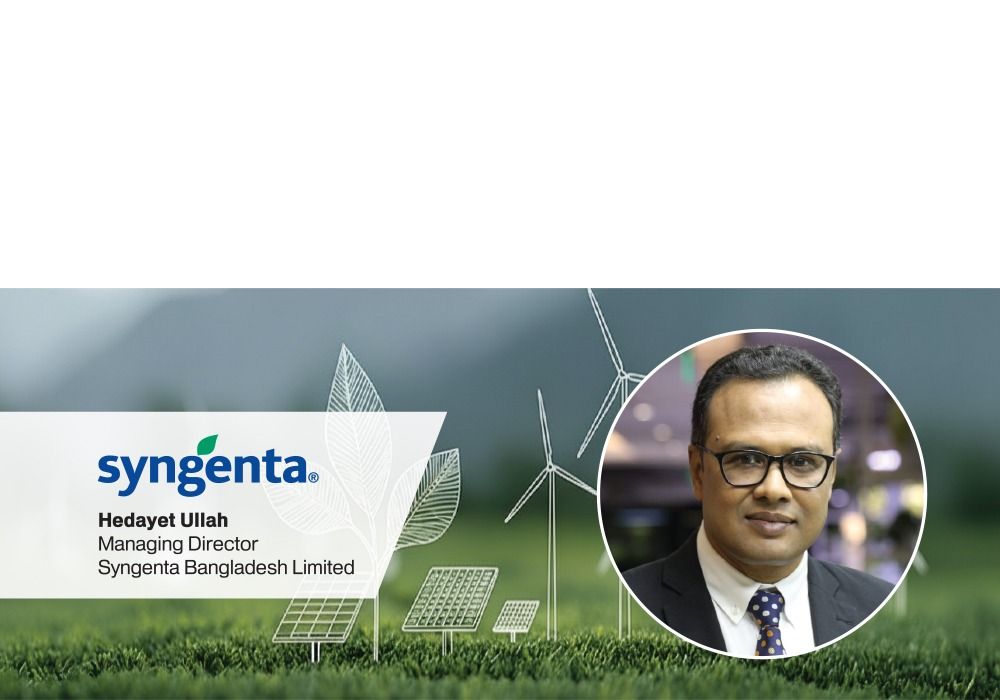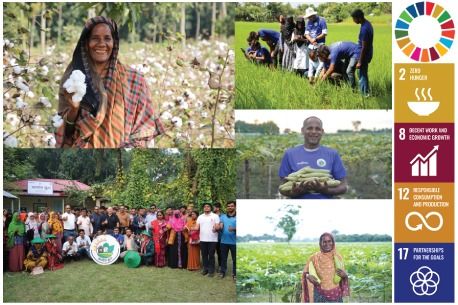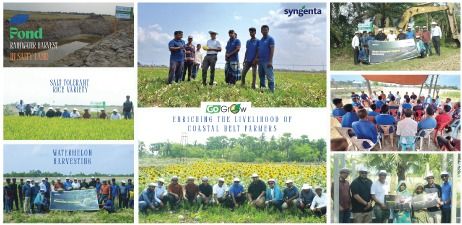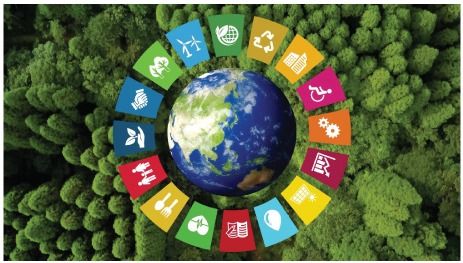- info@ficci.org.bd
- |
- +880248814801, +880248814802
- Contact Us
- |
- Become a Member
- |
- |
- |
- |
- |

When the world adopted the United Nations Sustainable Development Goals (SDGs) in 2015, the promise was clear- a collective journey to end poverty, protect the planet, and ensure prosperity by 2030. For Bangladesh, the goals were more than global commitments-they became a roadmap for national transformation. Today, standing just five years away from 2030, the country has much to celebrate: sustained economic growth, reduced poverty rates, impressive gains in gender parity, and remarkable achievements in food production. Yet equally clear are the challenges that remain-climate resilience, inequality, healthcare, education, and sustainable industrialization.
Bangladesh's story of progress is inseparable from agriculture. Food security remains a cornerstone of national development, and agriculture contributes directly to multiple SDGs-zero hunger (SDG 2), decent work and economic growth (SDG 8), responsible consumption and production (SDG 12), and climate action (SDG 13). Yet, agriculture is also where climate vulnerability strikes hardest. Rising temperatures, unpredictable rainfall, floods, and salinity threaten the very foundation of rural livelihoods. In this context, readiness for 2030 is not only about producing more-it is about producing smarter, greener, and fairer.

At Syngenta Bangladesh, we believe readiness for 2030 is not just about meeting targets-it is about transformation. With more than 50 years of presence in Bangladesh, our journey has always been rooted in farmers' prosperity. Because in this country, sustainable development begins with agriculture. Through innovation, partnerships, and responsible practices, we strive to be not just a participant, but a driver of sustainable development, delivering impact that resonates across SDG 2, SDG 8, SDG 12 and SDG 17.
Syngenta's Pathway: Science, Sustainability, and Shared Value
As a global leader in agricultural science, Syngenta does more than deliver crop solutions-it anchors its mission in measurable sustainability. Globally, the Group pursues four core sustainability priorities: Higher Yields, Lower Impact, Regenerate Soil & Nature, Improve Rural Prosperity, and Sustainable Operations. These pillars guide investments, innovation, and partnerships across all markets-including Bangladesh.
In practice, this means Syngenta seeks to accelerate productivity while reducing environmental burdens; restore degraded soils, support biodiversity, and enable regenerative practices; broaden access to knowledge, finance, and market linkages for underserved farmers; and minimize the carbon footprint, waste, and resource use within its own operations.
By embedding these strategies, Syngenta is contributing tangibly to the Sustainable Development Goals - especially SDG 2 by improving yield; SDG 12 by judicious use of agri inputs and SDG 17 by working with governments, research institutions, NGOs, and farmer communities.

Driving Climate Resilience and Food Security
Across Bangladesh's coastal belt, where rising salinity and unpredictable weather have pushed many farmers to migrate in search of livelihoods, Syngenta is helping communities rebuild their roots in farming. Through its global sustainability vision, the company invests in climate-smart seeds and crop protection solutions that can withstand floods, droughts, and salt intrusion turning vulnerability into resilience.
In Satkhira, the GoGrow project has become a symbol of hope for enriching the livelihood of costal farmers. It brings together saline-tolerant rice varieties, solar irrigation systems, regenerative agriculture, and rainwater harvesting to restore productivity on land once left barren. Farmers who once considered leaving their villages in search of work are now cultivating again-growing food, earning income, and rebuilding their futures close to home.
By 2030, Syngenta aims to expand GoGrow to reach 12,000 families and transform over 5,000 acres of vulnerable land into productive farms. This initiative reflects Syngenta's global goal of fostering higher yields with lower impact and improve rural Prosperity in alignment with SDG 2.
Integrated Learning Hub for Farmers
Technology may open doors, but true transformation in agriculture begins with knowledge. Recognizing this, Syngenta Bangladesh established the country's first infrastructural Farmer's School in Rajshahi-an innovation hub designed to strengthen the entire ecosystem around farming. Here, farmers don't just learn to grow better crops; they understand how every element of their livelihood connects. The curriculum integrates modern agronomy, fisheries, livestock rearing, soil health management, regenerative practices, and safe use of agri inputs, helping farmers adopt a holistic approach that enhances both productivity and sustainability. Already, more than 1,200 farmers across 14 villages have already reported 20% higher yields and 15% lower costs, showing how knowledge-driven farming can build productivity, sustainability, and community resilience that connect SDG 2.
Building Sustainable Value Chains
Sustainability doesn't stop at harvest-it begins there. Farmers need access to markets, finance, and services that turn their hard work into real prosperity. Syngenta Bangladesh connects farming with the broader ecosystem that supports it. At the heart of this effort are CENTRIGO centers, which provide farmers with everything from financing and crop insurance to mechanized harvesting, tele-medicine service, seed treatment, and digital advisory through modern agronomy platforms. These centers also enable forward linkages with buyers such as PepsiCo, ensuring fair market access and better prices. This end-to-end model not only reduces post-harvest losses and waste but also builds resilient rural economies. By empowering farmers with knowledge, finance, and market connections, Syngenta is helping them move confidently from survival to success and strengthening Bangladesh's agricultural future and ensuring achieving SDG 2 and SDG 8.

Strengthening Partnerships for Impact
Collaboration is not a choice-it is the cornerstone of sustainable development. At Syngenta Bangladesh, partnerships lie at the heart of everything we do. We work closely with the Department of Agricultural Extension (DAE), research institutes such as Bangladesh Agricultural Research Institute (BARI) and Bangladesh Institute of Nuclear Agriculture (BINA), local governments, NGOs, and private-sector partners to ensure that innovation truly reaches farmers' fields. Together, these collaborations are driving tangible change-developing climate-smart crop varieties, expanding agricultural insurance, promoting stewardship, and nurturing the next generation of agri-leaders through scholarships and training. This collective effort reflects the spirit of SDG 17: Partnerships for the Goals, proving that shared responsibility is the only path to lasting, sustainable success.
Looking Ahead
The next five years will be decisive. If Bangladesh can strengthen climate resilience, empower smallholders with knowledge, and foster inclusive innovation, it will not only achieve its SDG targets but emerge as a global model for sustainable growth. At Syngenta Bangladesh, our ambition is clear: to enable millions of farmers to thrive sustainably, to protect natural resources for the future, and to contribute to a resilient, food-secure, and equitable Bangladesh.
2030 is not a distant horizon, it is just around the corner. The readiness we build today will shape the prosperity of tomorrow. Together, with science, sustainability, and purpose, we can turn the vision of the SDGs into reality for Bangladesh.





